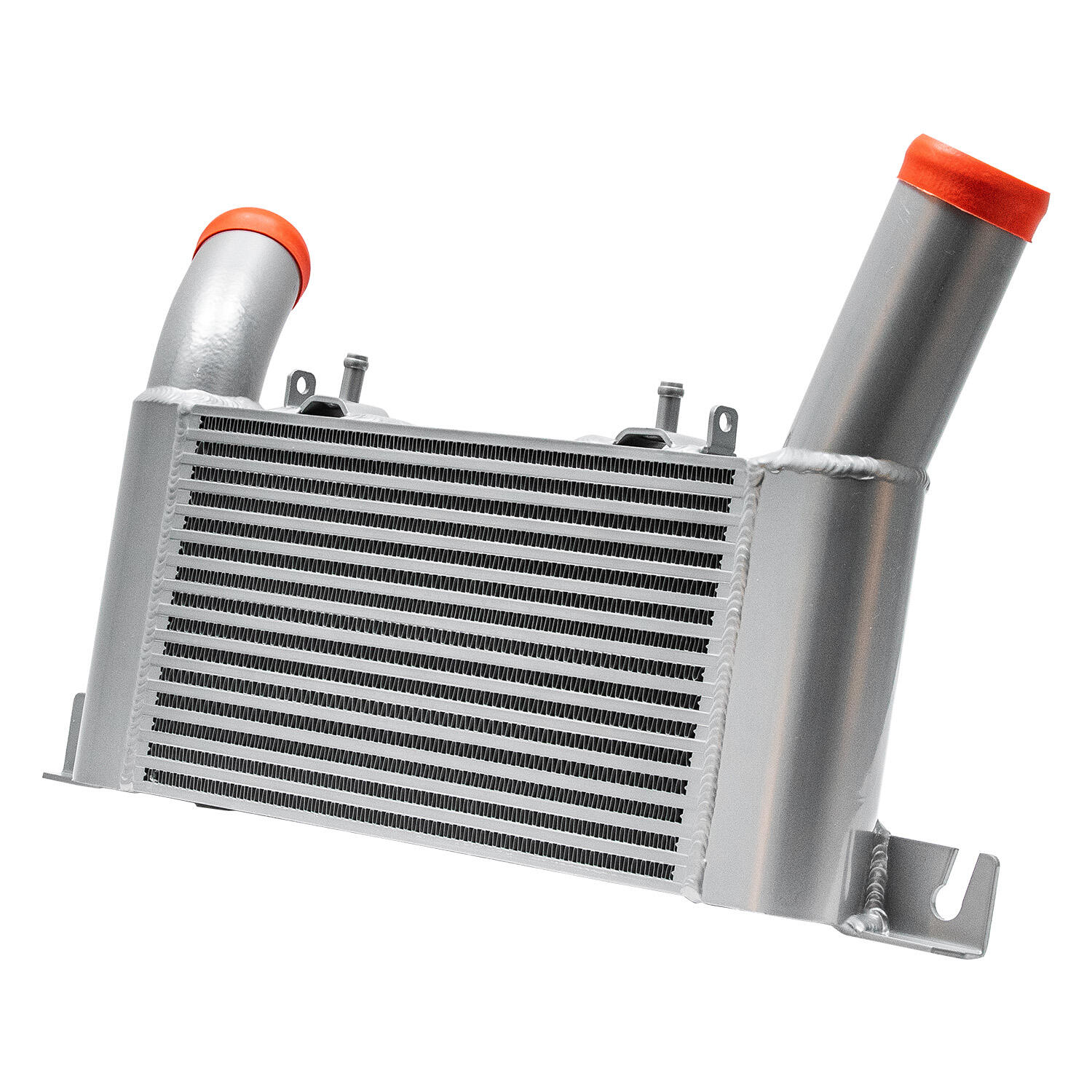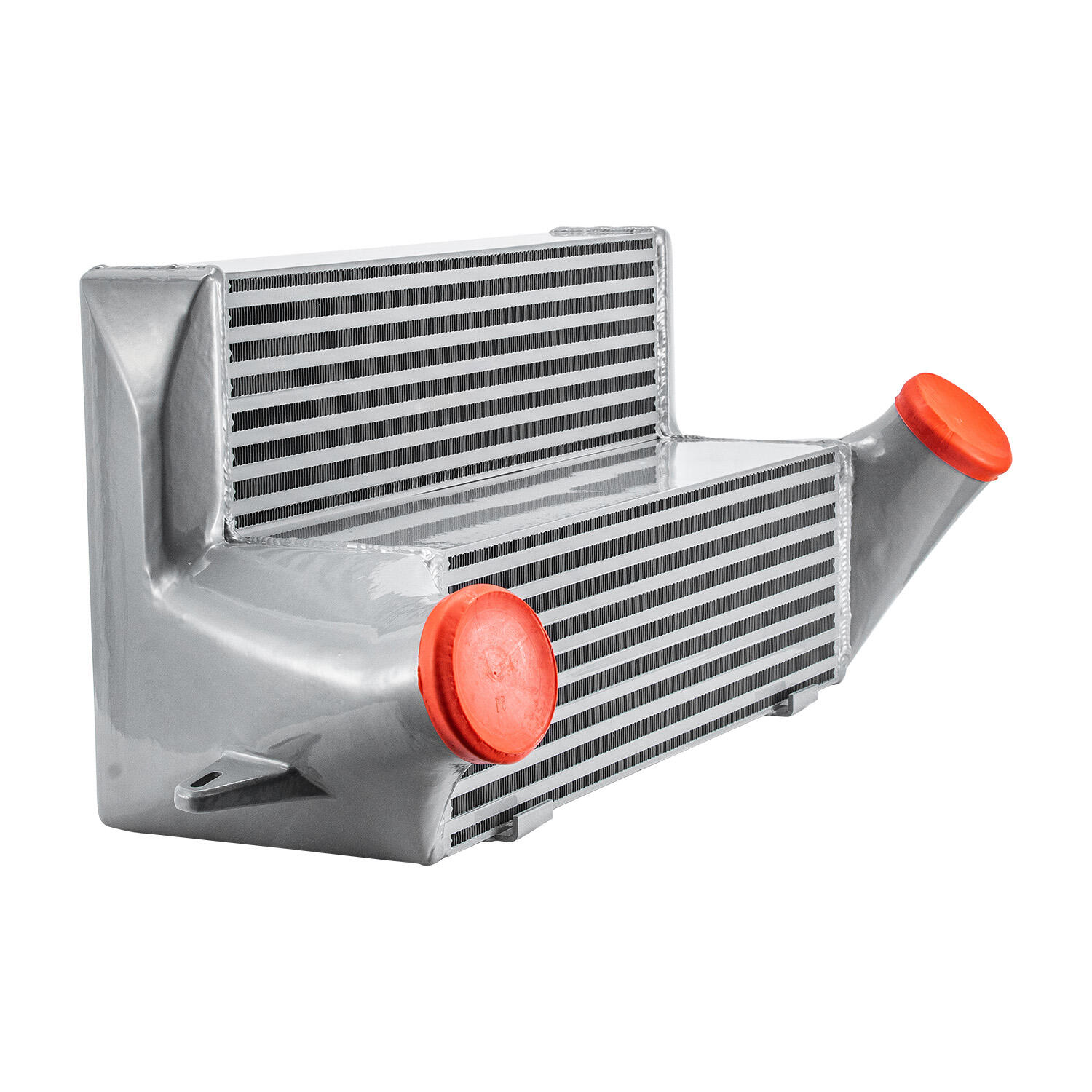उन्नत शीतलन प्रणालियों के साथ ईवी प्रदर्शन में क्रांति
महत्वपूर्ण परिवर्तन की सुबह पर मोटर उद्योग खड़ा है क्योंकि इंटरकूलर तकनीक उच्च-प्रदर्शन इलेक्ट्रिक वाहनों द्वारा उत्पन्न तीव्र तापीय चुनौतियों को संभालने के लिए पारंपरिक शीतलन प्रणालियों को फिर से डिज़ाइन किया जा रहा है, जो वाहन थर्मल प्रबंधन के हमारे दृष्टिकोण में एक महत्वपूर्ण बदलाव को चिह्नित करता है। 2025 की ओर बढ़ते हुए, अगली पीढ़ी के इलेक्ट्रिक वाहनों में इष्टतम प्रदर्शन और दक्षता बनाए रखने में नवाचारी इंटरकूलर तकनीक बढ़ती तरीके से महत्वपूर्ण हो रही है।
प्रदर्शन पर केंद्रित इलेक्ट्रिक वाहनों की बढ़ती लोकप्रियता के साथ, निर्माता मोटर की गर्मी और पावर इलेक्ट्रॉनिक्स थर्मल प्रबंधन की दोहरी चुनौतियों से निपटने में सक्षम जटिल शीतलन समाधान विकसित करने में भारी निवेश कर रहे हैं। ये उन्नति केवल मामूली सुधार नहीं हैं बल्कि इलेक्ट्रिक वाहन शीतलन प्रणालियों के हमारे दृष्टिकोण में मौलिक परिवर्तन का प्रतिनिधित्व करती हैं।
अगली पीढ़ी की शीतलन वास्तुकला
एकीकृत थर्मल मैनेजमेंट सिस्टम
आधुनिक इंटरकूलर तकनीक एकीकृत थर्मल प्रबंधन प्रणालियों की ओर बढ़ रही है जो कई शीतलन सर्किटों के समन्वय को संभालती हैं। इन जटिल सेटअप में विभिन्न वाहन घटकों में शीतलन दक्षता को अनुकूलित करने के लिए स्मार्ट नियंत्रकों का उपयोग किया जाता है। उन्नत एल्गोरिदम को लागू करके, ये प्रणाली वास्तविक समय में शीतलन की आवश्यकताओं की भविष्यवाणी कर सकती हैं और उन्हें समायोजित कर सकती हैं, जिससे ऊर्जा की खपत को न्यूनतम करते हुए इष्टतम प्रदर्शन सुनिश्चित होता है।
एकीकरण केवल तापमान नियंत्रण से परे है, जो शक्ति इलेक्ट्रॉनिक्स, बैटरी प्रणालियों और मोटर शीतलन को एक एकीकृत थर्मल प्रबंधन रणनीति में शामिल करता है। इस समग्र दृष्टिकोण से ऊष्मा वितरण और पुनर्प्राप्ति में सुधार होता है, जिससे पूरी प्रणाली की दक्षता में महत्वपूर्ण सुधार होता है।
उन्नत सामग्री और डिजाइन नवाचार
सामग्री विज्ञान में आई नई खोजों से अधिक कुशल इंटरकूलर प्रौद्योगिकी के विकास को संभव बनाया गया है। उन्नत तापीय चालकता गुणों वाली नई कंपोजिट सामग्री को लागू किया जा रहा है, जो बेहतर ऊष्मा अपव्यय की अनुमति देती हैं जबकि प्रणाली के कुल भार को कम करती हैं। इन सामग्रियों को उच्च-प्रदर्शन विद्युत वाहनों में अनुभव किए जाने वाले अद्वितीय तनाव पैटर्न और तापमान परिवर्तन का सामना करने के लिए विशेष रूप से डिज़ाइन किया गया है।
डिज़ाइन नवाचारों में सूक्ष्म-चैनल शीतलन संरचनाओं और उन्नत सतह उपचारों का उपयोग शामिल है जो ऊष्मा स्थानांतरण दक्षता को अधिकतम करते हैं। आधुनिक इलेक्ट्रिक वाहन पावरट्रेन द्वारा उत्पादित तीव्र तापीय भारों का प्रबंधन करते समय संकुचित पैकेजिंग आवश्यकताओं को बनाए रखने के लिए ये विकास महत्वपूर्ण हैं।

प्रदर्शन लाभ और दक्षता में वृद्धि
उन्नत शक्ति आउटपुट प्रबंधन
आधुनिक इंटरकूलर तकनीक इलेक्ट्रिक वाहनों में निरंतर प्रदर्शन में सीधे योगदान देती है। सभी महत्वपूर्ण घटकों में इष्टतम संचालन तापमान बनाए रखकर, ये प्रणाली मांग वाली परिस्थितियों के तहत भी स्थिर शक्ति वितरण की अनुमति देती हैं। सुधरी हुई थर्मल प्रबंधन प्रणाली प्रदर्शन में कमी के जोखिम के बिना उच्च निरंतर शक्ति आउटपुट की अनुमति देती है।
उन्नत शीतलन समाधान थर्मल थ्रॉटलिंग को रोकने में भी मदद करते हैं, जो उच्च प्रदर्शन वाले इलेक्ट्रिक वाहनों (EVs) में एक सामान्य समस्या है, जहाँ घटकों के अधिक ताप से बचाव के लिए शक्ति आउटपुट कम कर दिया जाता है। इससे अधिक निश्चित और विश्वसनीय प्रदर्शन विशेषताएँ प्राप्त होती हैं, जो प्रदर्शन-उन्मुख इलेक्ट्रिक वाहनों के लिए आवश्यक हैं।
ऊर्जा दक्षता में सुधार
इंटरकूलर तकनीक में नवीनतम विकास से समग्र ऊर्जा दक्षता में महत्वपूर्ण सुधार हुआ है। स्मार्ट थर्मल प्रबंधन प्रणाली वास्तविक समय में शीतलन की मांग के आधार पर कूलेंट प्रवाह और पंप संचालन को अनुकूलित करके सहायक नुकसान को कम कर सकती है। थर्मल प्रबंधन के इस बुद्धिमान दृष्टिकोण से वाहन की रेंज बढ़ती है और बैटरी जीवन में सुधार होता है।
आधुनिक शीतलन समाधानों द्वारा परिष्कृत ऊष्मा पुनर्प्राप्ति प्रणालियों को लागू करके उस तापीय ऊर्जा को पकड़ा और फिर से उपयोग किया जा सकता है जो अन्यथा बर्बाद हो जाती है। इस पुनः प्राप्त ऊर्जा का उपयोग केबिन को गर्म करने या बैटरी के तापमान को नियंत्रित करने के लिए किया जा सकता है, जिससे वाहन की समग्र दक्षता में और सुधार होता है।
पर्यावरणीय प्रभाव और स्थायित्व
पर्यावरण सुदृढ़ ठंडा हल
इंटरकूलर तकनीक का विकास पर्यावरणीय स्थिरता लक्ष्यों के साथ निकटता से जुड़ा हुआ है। आधुनिक प्रणालियाँ EV शीतलन प्रणालियों के पर्यावरणीय प्रभाव को कम करने के लिए कम ग्लोबल वार्मिंग क्षमता वाले पर्यावरण-अनुकूल शीतलकों का उपयोग करती हैं। निर्माता बंद चक्र प्रणालियों को भी लागू कर रहे हैं जो शीतलक प्रतिस्थापन की आवश्यकता को कम करती हैं और पर्यावरणीय संदूषण के जोखिम को कम करती हैं।
इन प्रणालियों को जीवनचक्र स्थिरता को ध्यान में रखकर डिज़ाइन किया गया है, जिसमें रीसाइकिल योग्य सामग्री और मॉड्यूलर निर्माण शामिल है जो रखरखाव और अंततः पुनर्चक्रण की सुविधा प्रदान करता है। यह दृष्टिकोण सेवा जीवन भर इलेक्ट्रिक वाहनों के समग्र पर्यावरणीय पदचिह्न को कम करने में मदद करता है।
संसाधन अनुकूलन
उन्नत इंटरकूलर तकनीक सुधरी हुई दक्षता और कम सामग्री उपयोग के माध्यम से बेहतर संसाधन उपयोग में योगदान देती है। स्मार्ट थर्मल प्रबंधन प्रणाली कूलेंट के संचलन को अनुकूलित करती है, जिससे पंप की ऊर्जा खपत कम होती है और घटकों का जीवन बढ़ जाता है। उन्नत सामग्री और डिजाइन तकनीकों के उपयोग से छोटी, हल्की कूलिंग प्रणाली का निर्माण संभव होता है जिसके उत्पादन के लिए कम कच्चे माल की आवश्यकता होती है।
पूर्वानुमानित रखरखाव क्षमताओं के एकीकरण से प्रणाली विफलताओं को रोकने और सेवा अंतराल को बढ़ाने में मदद मिलती है, जिससे रखरखाव और मरम्मत से संबंधित संसाधन खपत कम होती है। प्रणाली प्रबंधन का यह प्रो-एक्टिव दृष्टिकोण इसके अनुकूल प्रदर्शन को सुनिश्चित करते हुए पर्यावरणीय प्रभाव को कम करता है।
अक्सर पूछे जाने वाले प्रश्न
आधुनिक इंटरकूलर तकनीक पारंपरिक कूलिंग प्रणालियों से कैसे भिन्न है?
आधुनिक इंटरकूलर प्रौद्योगिकी में एकीकृत तापीय प्रबंधन, उन्नत सामग्री और स्मार्ट नियंत्रण प्रणाली शामिल हैं जो कई शीतलन सर्किट के समन्वय को सुनिश्चित करते हैं। पारंपरिक प्रणालियों के विपरीत, ये समाधान पूर्वानुमान शीतलन क्षमता प्रदान करते हैं और विभिन्न वाहन घटकों में एक साथ प्रदर्शन को अनुकूलित कर सकते हैं, जबकि उच्च दक्षता के स्तर को बनाए रखते हैं।
EV रेंज पर उन्नत शीतलन का क्या प्रभाव पड़ता है?
उन्नत इंटरकूलर प्रौद्योगिकी EV रेंज में महत्वपूर्ण सुधार कर सकती है, जिसमें पैरासिटिक नुकसान को कम करना, ऊर्जा के उपयोग को अनुकूलित करना और घटकों को उनके आदर्श संचालन तापमान पर बनाए रखना शामिल है। जटिल तापीय प्रबंधन प्रणाली अत्यधिक गर्मी के कारण होने वाले शक्ति नुकसान को रोकने में मदद करती है और अपशिष्ट ऊष्मा को वाहन के अन्य कार्यों के लिए पुनः प्राप्त कर सकती है।
क्या ये शीतलन समाधान मौजूदा EV प्लेटफॉर्म के साथ संगत हैं?
हालांकि कुछ उन्नत शीतलन समाधानों को मौजूदा प्लेटफॉर्म में ढाला जा सकता है, अधिकांश अगली पीढ़ी की इंटरकूलर तकनीक को नए इलेक्ट्रिक वाहन (EV) आर्किटेक्चर में एकीकरण के लिए डिज़ाइन किया गया है। इससे शीतलन घटकों को इष्टतम स्थान और प्रदर्शन प्राप्त होता है और साथ ही नवीनतम तकनीकी उपलब्धियों का पूरा लाभ उठाया जा सकता है।

